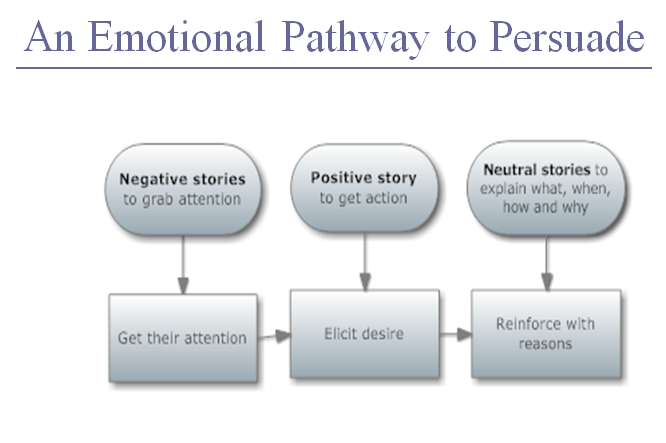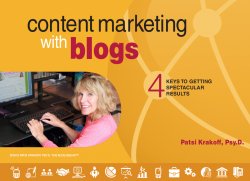 If you want your content marketing messages to be remembered, you must engage the emotional memories of your readers. Memory formation happens in two ways:
If you want your content marketing messages to be remembered, you must engage the emotional memories of your readers. Memory formation happens in two ways:
- A new memory is formed when it hits the amygdala and makes an emotional connection.
- A stimulus may hit the amygdala and be assimilated because it resembles a previously established emotional connection.
What results is a neural network of recalled associations that gets triggered by a memory of a hot-button stimulus. Everything we retain in memory is because it’s gained an emotional place in our brain. At some point, something was important enough because it was emotional. That’s what hot-buttons are… we feel as if someone has poked us.
What can you do to stimulate memory formation? Make an emotional impact.
How? As a content marketing professional, you have words and visuals in your quiver of tools. How do you poke someone and push their hot buttons?
Stories are key. Negative stories can get people’s attention, but can also leave a negative aftertaste, if not followed by positive stories. I’ve talked about this before:
► Grab the audience’s attention ► Stimulate desire ► Reinforce with reasons
What else can you do to poke someone’s hot buttons? How else do you make an emotional impact?
Humor is great, but that’s like the old Steve Martin joke, “How do you avoid paying taxes on a million dollars? Well, first you get a million dollars…” Knowing humor works doesn’t tell you how to be funny.
Knowing that you need to make an emotional impact on your readers doesn’t tell you how to do it. But one thing is for sure, telling a good story that has a negative part, a crisis, and a turnaround positive solution will make some kind of emotional impact.
Unless, of course, you’ve got a targeted audience of readers who lack mirror neurons and all signs of empathy. Why do I say this? Because one of the hallmarks of social animals such as human beings is the presence in the brain of special neurons which allow us to feel what someone else experiences, just as if we were in the story ourselves.
I was on vacation at the beach last week, sipping lemonade under palm trees with my husband and not thinking about much of anything other than my gin rummy hand and what time was lunch.
This story doesn’t have any point other than to ask you if your brain “went there with me.” Most people easily allow themselves to be transported to a sunny relaxing state when certain words are mentioned.
Maybe my story was weak in that it didn’t really have any drama. But trust me, it illustrates that even small stories can generate emotions. We can all learn to use more emotion in our content marketing. Without it, we can’t expect to be remembered.
As for selling more widgets through emotional story-telling, that’s the art and craft of content marketing, isn’t it? It’s not easy, but it’s creative and you can do it.














Recent Comments